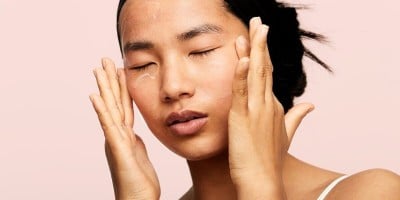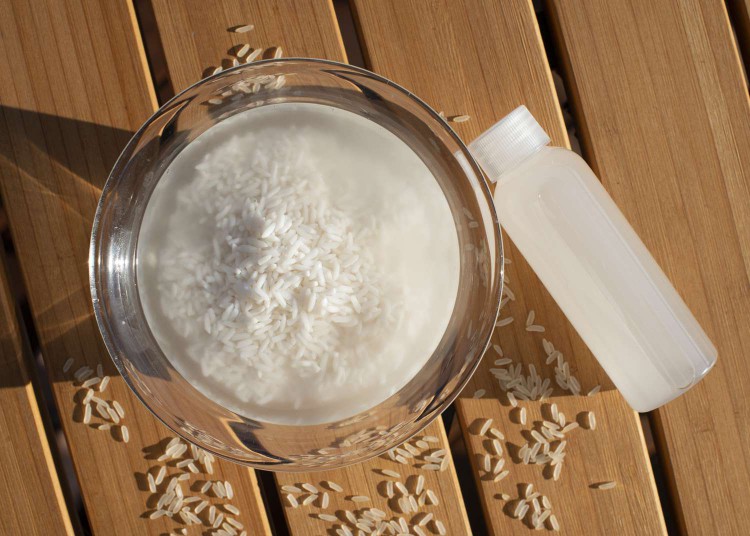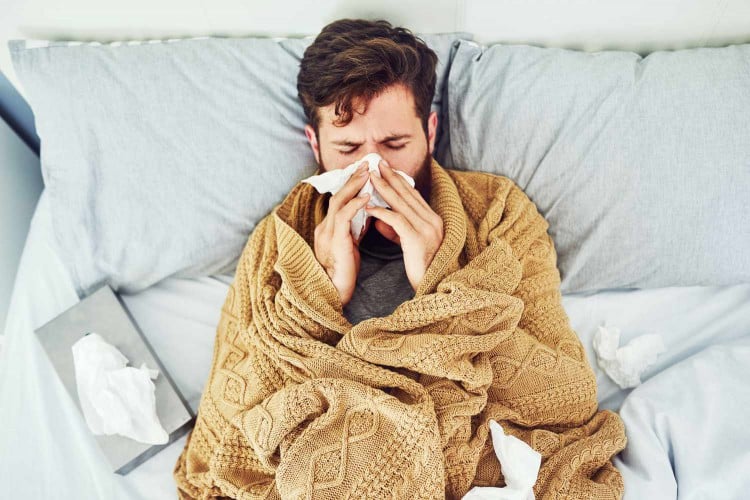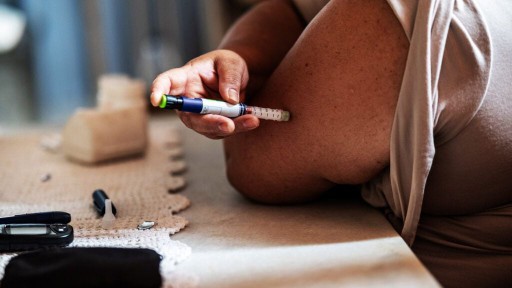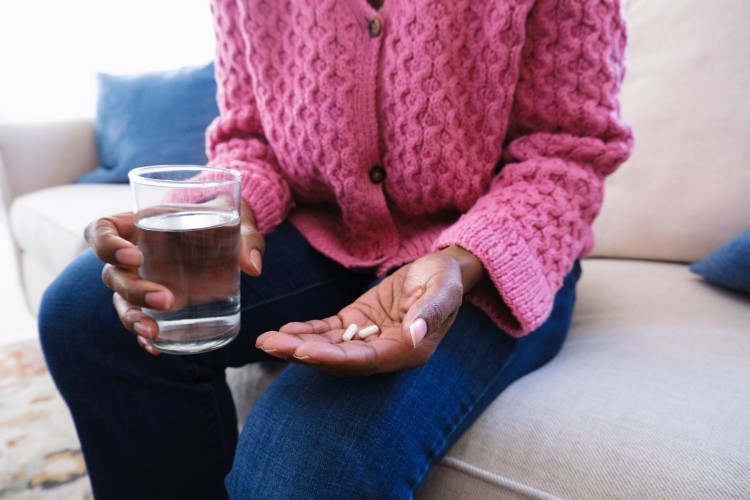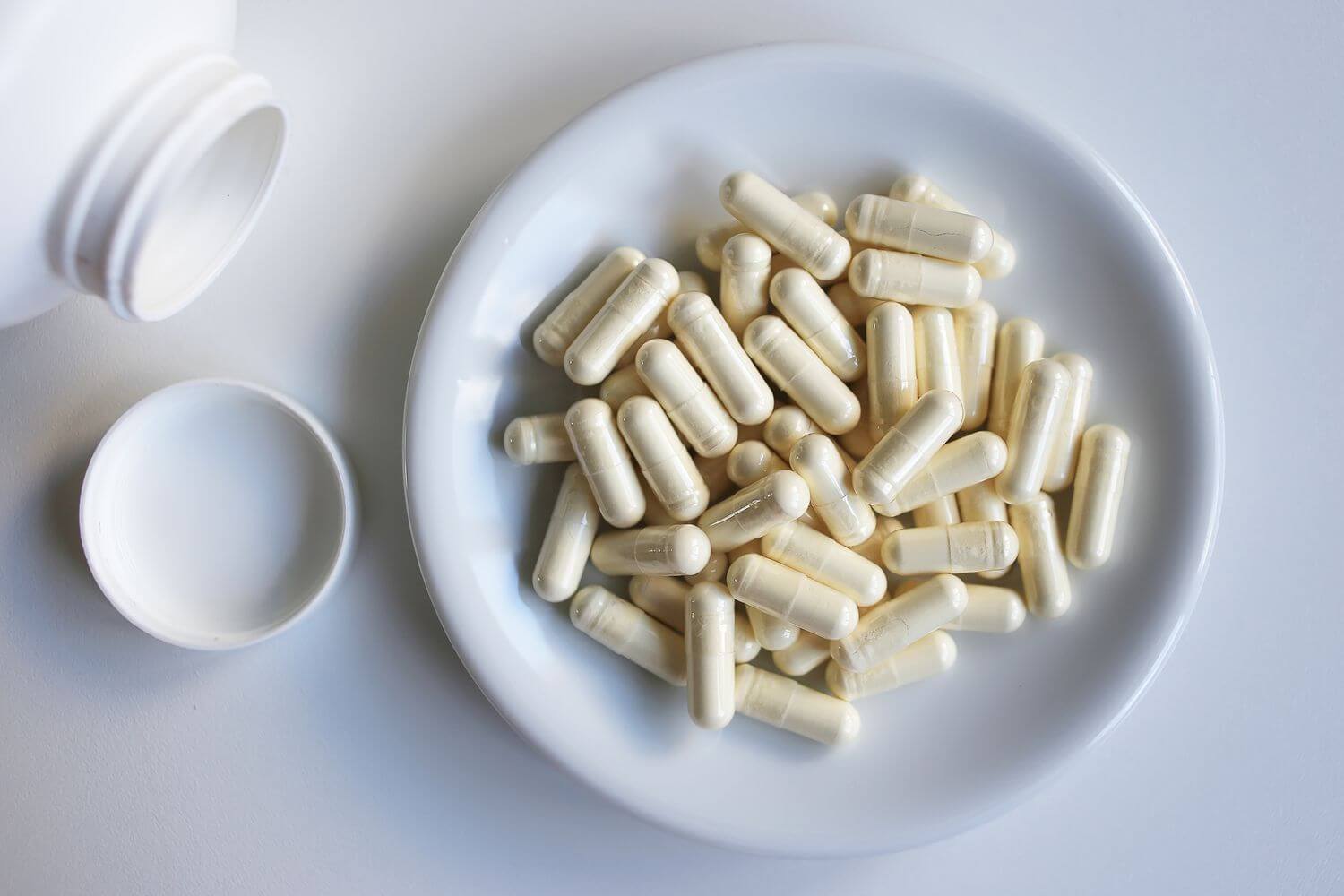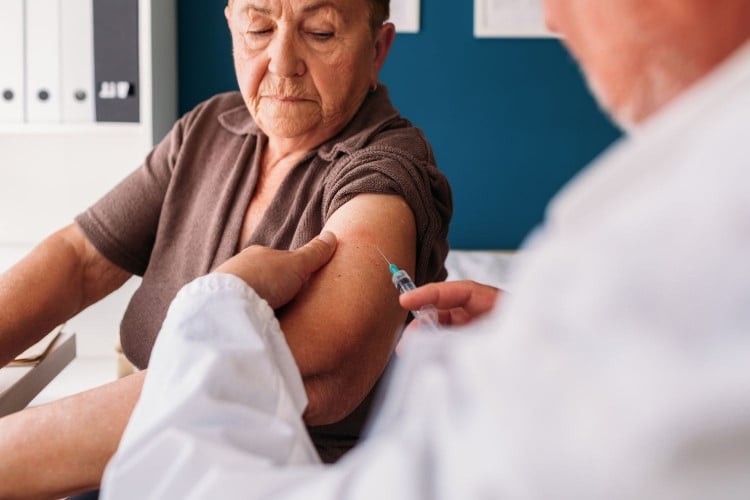
- New research found seven lifestyle factors that may help reduce the risk of depression: alcohol intake, diet, physical activity, sleep, smoking, sedentary behavior, and social life.
- You don't have to perfectly follow all seven factors in order to help lower your depression risk—researchers said adhering to 5-7 of the recommended factors can help.
- Experts recommend patients prioritize a healthy lifestyle, but understand that it's not guaranteed to cure or halt depression; outside treatments are available and often necessary.
Certain lifestyle factors may help lower your risk of depression, a new study finds.
There are a variety of things that go into someone's mental wellbeing. Often factors like genetics play a role in whether or not someone might be prone to developing a mental illness. But there are also variables that play a part in lowering someone's risk for illnesses like depression.
New research, published in Nature Mental Health, found that there are seven lifestyle factors that can help reduce the risk of depression. These include moderate alcohol consumption, a healthy diet, and regular physical activity.
To explore the association between these lifestyle factors and depression, researchers collected data from the UK Biobank, analyzing information from nearly 290,000 people, which included 13,000 who had depression. Data was collected over the course of nine years.
Specifically, researchers looked at the following seven lifestyle factors:
- Moderate alcohol intake
- Healthy diet
- Regular physical activity
- Healthy sleep
- Never smoking
- Low-to-moderate sedentary behavior
- Regular social interaction
Overall, researchers found the more healthy lifestyle factors people engaged in, the better. Participants were given a score from 0–7, based on the number of healthy habits they engaged in, and placed into one of three groups: favorable (engaged in 5–7 lifestyle factors), intermediate (2–4), and unfavorable (0–1).
People in the "favorable" lifestyle group were 57% less likely to develop depression, compared to the "unfavorable" group; the "intermediate" group was 41% less likely.
“Changing our behaviors and developing a healthy lifestyle is something that we can do for ourselves to lower the risk of depression," study author Barbara Sahakian, FMedSci, DSc, a professor in the department of psychiatry at the University of Cambridge, told Health.
"As a society, we often focus on our physical health, but we should spend more time focusing on our mental health and wellbeing," she said.
Sahakian explained that future studies should look at how developing healthy lifestyle habits at a younger age may impact adolescent depression. Currently, depression rates for those age groups are rising.
“It is important that children and adolescents have healthy lifestyles and they develop good habits in terms of diet, sleep, exercise, social connectedness and friendships," she said. "Schools should teach children about having a healthy lifestyle for promoting brain health, mental health, and wellbeing.”

Getty Images / filadendron
How Lifestyle Factors Influence Depression Risk
Following the healthy lifestyle laid out by the new study could contribute to a decrease in depression risk, but a few things should be taken into consideration before assuming these habits will fully resolve mental health issues.
“This is a very large group study and so for a particular individual there may be differences,” said Sahakian. “The UK Biobank group of participants is relatively healthier than the general population. There is also limited data on ethnic minorities.”
Nonetheless, having a healthy lifestyle would be beneficial for the individual in comparison to having an unhealthy lifestyle, Sahakian noted.
According to Wei Cheng, PhD, Young Principle Investigator at the Institute of Science and Technology for Brain-Inspired Intelligence at Fudan University, you don't have to follow every habit perfectly; adherence to a combination of the listed lifestyle factors can make a big difference.
Certain lifestyle factors may also have a bigger impact than others, study authors found. Getting a good night's sleep—between 7 and 9 hours each night—appeared to have the biggest reduction in depression risk at 22%.
“When we don’t get enough sleep, we may feel rundown, irritable, and lethargic,” Natalie Bernstein, PsyD, a licensed clinical psychologist and adjunct professor at The Chicago School of Professional Psychology, told Health.
Bernstein explained that without the proper amount of sleep, everyday activities can become difficult to execute. This can bleed into how well someone stays active, maintains a proper diet, and feels motivated to socialize with others.
“Ensuring we get enough sleep at night can be an effective way to recharge, give our bodies a chance to reset and our minds a break," Bernstein said.
The next most helpful factor in reducing depression risk was never smoking (20%), along with having frequent social connections, which lowered a person's risk of depression by 18%.
Regular physical activity—which reduced depression risk by 14%—is also essential to mental health, said Bernstein. Exercise contributes to someone's energy levels, she explained, which in turn lessens lethargy and boosts motivation. Increased motivation may help boost someone's desire for social interactions, which can limit feelings of aloneness, isolation, and low mood.
All these healthy lifestyle factors can work to support one another.
That said, there are other aspects of life that can negatively affect someone's mental health.
“It would be short-sighted to think that these factors alone can alleviate depression and it’s important to not blame yourself if you prioritize these activities and still struggle with depression,” said Bernstein.
Some episodes of depression may be combined with other mental health or physical challenges or even be too severe to be overcome by strategies or lifestyle changes alone, she said. Lifestyle changes combined with psychotropic medication and even therapy are more likely to effectively enact change.
Finding the Correct Way to Treat Your Depression
If someone believes they’re doing everything in their power to lower their depression risk but are still feeling symptoms, psychological treatment combined with medical intervention may be recommended.
The new study focused on reducing the risk of developing depression and how having a healthy lifestyle could help prevent depression. But that's not to say that having a healthy lifestyle will cure your depression—nor should you assume it will be an equal substitution for other treatment methods.
If someone has depression, it's important to get it treated early and effectively. There are psychological treatments, such as cognitive behavioral therapy (CBT), as well as pharmacological treatments, such as selective serotonin reuptake inhibitors (SSRIs). Examples of SSRIs include Prozac and Cipralex, Sahakian said.
Most importantly, if you're struggling with depression, it's important to ask for help.
“Seeking support from a friend, family, or if necessary professional counselor, will help to affirm and validate their need for support and potentially give them a forum in which to explore the effects of depression,” said Bernstein.
When symptoms persist for more than two weeks, are not otherwise explained by a known life stressor, and do not respond to suggested lifestyle changes, contacting a trained professional is recommended.
Bernstein said that if the symptoms interfere with or detract from your daily life functioning, it warrants taking the next step to seek counseling.
Depression Rates Are Higher Than Ever—Experts Say These 5 Things Need to Change

